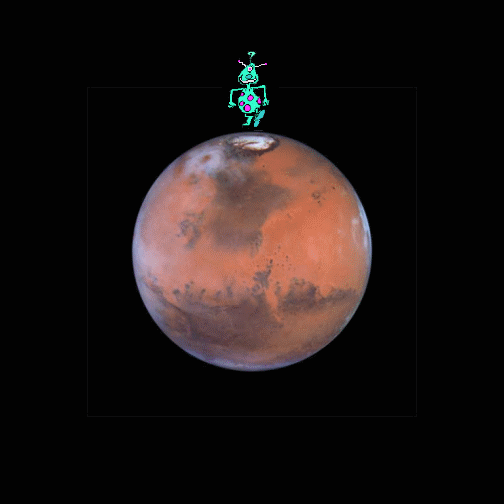THE GREENHOUSE EFFECT
Most of us know that climate change is being
caused by the warming of our planet. But what causes this warming?
What would you call a planet without it's blanket? COLD!!
Confused? Well don't be!! I will give you a simple explanation that
will enlighten you.

Lets say that you next planned vacation could be on the planet Mars. Doing any
daytime activities would require you to bring two very important items in your
suitcase, A bathing suit and tons of sunscreen as temperatures would be about
37 degrees Celsius. However, at night, I would suggest that you may want
to bring a few Kunuck's as temperatures would plummet down to a nippy -123
degrees Celsius or so. Why does Mars cool off so much at night?
Well, it's because the suns heat scoots right back out into space when the sun
goes down. In other words Mars doesn't have much of a blanket to keep the
warmth of the day in.
What do I mean exactly when I use the term "BLANKET"
Well down here on Planet Earth, about half of the sun's heat that reaches us is absorbed by the land and water. When the sun goes down, the absorbed
heat is slowly released into the air
Our atmosphere which are composed from a layer of gases, surrounding the earth,
which absorbs some of the sun's heat and also helps keep the released surface
heat from floating quickly off into space. In other words, the planets
atmosphere is like a blanket that surrounds our world. This atmosphere
also lets in just the right amount of the sun's heat (about 70%) and, reflects
the rest sending it back out into space. Water vapor and a tiny amount of
trace gases in the atmosphere is what keeps us from frying or freezing on our
planet.
Trace
Gases
1. Make up less than 0.1% of the atmosphere
2. They include carbon dioxide (CO2), methane (CH4) and nitrous oxide (N2O)
3. Most importantly, they are big-time players when it comes to keeping the
world at temperatures we can survive.


